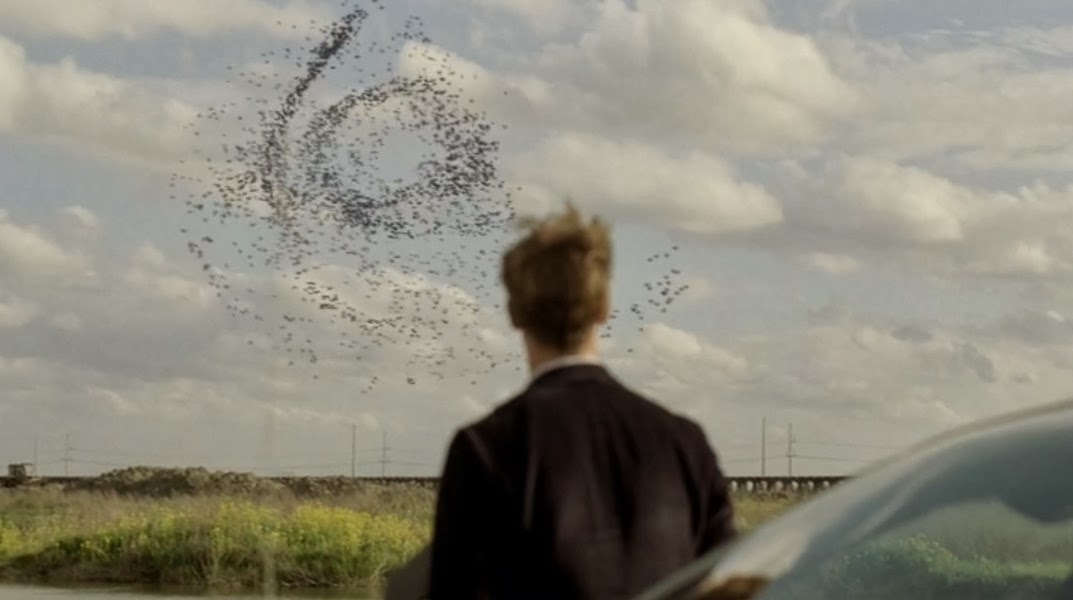Meat is Murder: Hannibal, True Detective, and the Anthropocene Extinction
 The anthropocene extinction, which Jack quite reasonably argues should be called the capitalocene extinction, is by some margin the most urgent philosophical issue facing humanity today. So let’s talk about a pretentiously well-directed television show that purports to be a crime drama, but is really just a vehicle for two men to urgently discuss the nature of the universe.
The anthropocene extinction, which Jack quite reasonably argues should be called the capitalocene extinction, is by some margin the most urgent philosophical issue facing humanity today. So let’s talk about a pretentiously well-directed television show that purports to be a crime drama, but is really just a vehicle for two men to urgently discuss the nature of the universe.
Let us suppose for the moment that I am talking about True Detective. Certainly I am not mischaracterizing it, although in its second season it made a substantial effort to engage with the question of what role women have in a universe that exists primarily for men to urgently discuss the nature of. (And indeed, of white men; were I to make one and only one suggestion for a third season, it would be for a main character of color who might prove capable of deflating the pretensions of the other detectives in the way Ani did this season.) Indeed, in many ways it is this second season that is easiest to start with; the most straightforward way to understand what sort of show that it is, thus understanding why its failure to quite be that in its first season was so electrifying.
On its most basic level, True Detective is a piece of noir. The plot of the second season – criticized by unimaginative reviewers as a convoluted mess – is in reality no worse than the legendarily incoherent classic The Big Sleep. And Chandler is certainly a major touchstone for the specifically Califronian subgenre of noir that True Detective works in this season – it’s all very “down these mean streets a man must go.” (In contrast with its first, southern gothic-inflected take on noir.)
Within noir, at least in the Chandler model, the story is not so much a mystery as it is a test of the detective’s soul. The investigation of a crime is merely a vehicle for this trial and tribulation. And that’s very obvious in Season Two of True Detective, where the overall structure is primarily that of a classical tragedy – the falls of Ray and Frank, presented in parallel at the story’s climax. But crucially, their downfalls are then subsumed by the third strand of narrative, Ani’s successful escape and eventual telling of the story. True Detective becomes, in other words, not a story about the tragic downfall of the male heroes, but about the act of surviving a Greek tragedy, Ani being, herself, named after a character who failed to do just that.
(This is one of the most basic themes of True Detective: the failures of masculinity. All of the leads of the show, Ani included, attempt to perform masculinity and, in crucial ways, fail and are shown to be inadequate: Frank’s blue balls in his heart, Ray’s pathetic threats to the father of his son’s bully, Ani’s self-destructive determination to fuck like one of the guys, Paul’s entire plot and conflict in a thuddingly literal way, and, for that matter, Rust and Marty in a variety of ways.…

